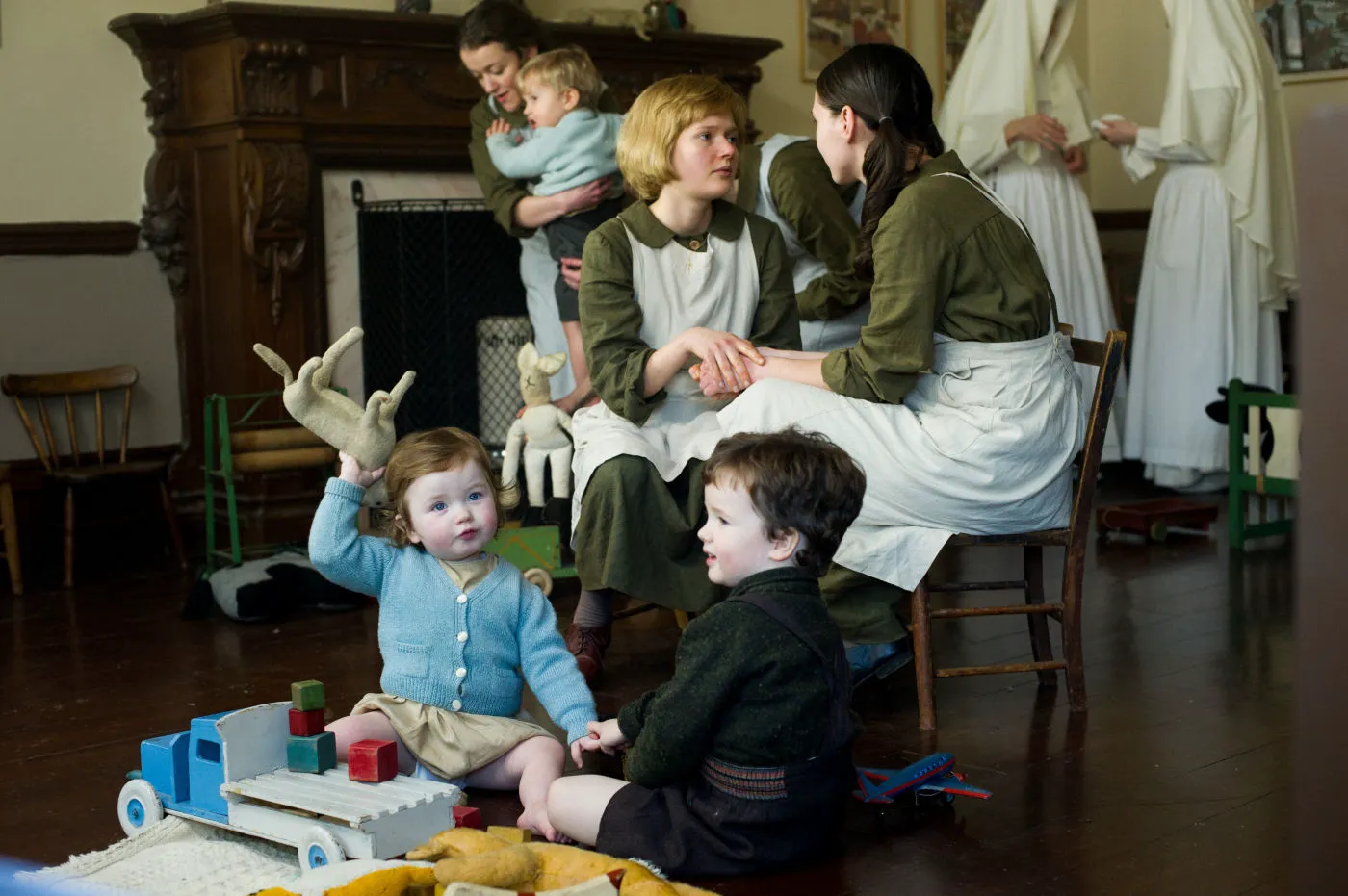Philomena: A Tale of Forgiveness and Redemption
In the quiet confines of a convent, young Philomena Lee commits what is deemed a grave sin – engaging in a forbidden liaison with a young man. The consequences are swift and severe. She is burdened with arduous labor, her newborn child raised with minimal maternal involvement. The most devastating blow comes when Philomena’s son is given up for adoption, and she is forced to sign a document relinquishing all rights to her child forever. Fifty years later, driven by an unwavering maternal instinct, she embarks on a quest to find her son, aided by Martin Sixsmith, a journalist who recognizes the compelling story within Philomena’s plight.

Fun Fact: The real Martin Sixsmith, author of the book about Philomena Lee, worked as a BBC journalist in Moscow for several years. In the film, this is transformed into Steve Coogan’s character’s desire to write a book about Russian history.
At first glance, the posters for Stephen Frears’ new film, “Philomena,” might deter some viewers or, at the very least, mislead them. The combination of “a drama based on real events” and a cheerful poster design seems incongruous. However, this initial impression is deceiving. “Philomena” is a remarkably successful and unique blend of drama and comedy, skillfully balanced to evoke neither uproarious laughter nor inconsolable weeping. Instead, it leaves the audience with a sense of euphoria and inspiration while prompting profound reflections on the human condition.
A Controversial Narrative

The film sparked outrage among Catholic priests who deemed the portrayal of convent life as excessively inhumane. Producer Harvey Weinstein defended Frears and his team by purchasing a full-page ad in The New York Times to refute the claims.
The events depicted in the film, readily verifiable through even the most cursory online research, might seem unbelievable if not for their basis in reality. Perhaps this is divine providence, ensuring that simple, relatable truths, which we may have doubted, are reaffirmed time and again. Stephen Frears treads a delicate path, addressing several enduring and sensitive issues: adoption, the intersection of religion and secular life, and even homosexuality – a combination that might provoke controversy. However, Frears is a filmmaker of nuanced sensibility who respects the intelligence of his audience. He avoids simplistic conclusions, presenting questions that invite diverse perspectives.
The Power of Contrasting Characters

This pluralism is particularly evident in the dynamic between the two main characters. Philomena, whose life has been shaped by a harsh Catholic upbringing, remains a docile and even contented individual, content with simple pleasures. Martin, on the other hand, embodies the driven individual, perpetually seeking more than what is readily available, making him a fighter but also setting him apart from the world. Together, these two characters form one of the most touching duos seen on screen in recent years.

Judi Dench’s Stellar Performance
Of course, Judi Dench takes center stage in “Philomena.” Her mastery as an actress is undeniable, having blossomed in the 2000s to such an extent that she is nominated for Oscars and Golden Globes for nearly every new role. Immersing herself in the role with unwavering dedication, Dench delivers a remarkable portrayal of a woman who embodies the epithet “saintly.” Dench imbues Philomena with such humility, sorrow, love, and longing to see her son that it is difficult to believe that we are watching “merely” an actress. While Judi Dench’s brilliance is a given, seeing Steve Coogan in a serious dramatic role is still somewhat unusual. Although Coogan has taken on roles that downplay comedy before, it is important to remember that he also co-wrote the screenplay and co-produced “Philomena.” This project is not just another role for him; it is likely to become a defining moment in his career.
Despite the inherent drama of the story, Frears’ film ultimately leaves the audience with a sense of hope and the triumph of good. While this triumph may be tinged with tears and may not always lead to happiness, it possesses the power to forgive and release. Philomena carries a heavy burden on her soul, but her path to redemption is paved with grace. Her profound sincerity and authenticity allow her to accept both tragic news about her loved one and to recount the plot of a trashy novel with equal equanimity. Such individuals have nothing to fear from either the devil or the Church.